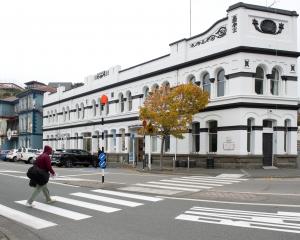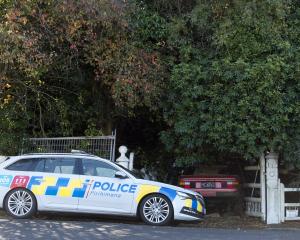Psychoactive substances commonly called synthetic cannabinoids were pulled from retailers' shelves in May 2014, but the introduction of a new regime last November allowed industry players take the first tentative steps back into the marketplace.
Chris James, of the Psychoactive Substances Regulatory Authority, said the authority had issued 10 licences - five for research and four for importation - while another research licence was revoked and another was being processed. Two were refused.
Otago University held a research and import licence, alongside the Drug Detection Agency, the Institute of Environmental Science and Research and the University of Auckland.
The man known as the "Godfather of the legal highs industry'', Matt Bowden, also holds a licence for research.
No licences for retail had been applied for and the ministry was advising retailers not to apply for them at present because any approved products remained at least three years away, Mr James said.
University laboratory manager Prof Lyall Hanton said the university obtained its licences last September.
"The university was being proactive in obtaining licences to import and research these classes of compounds in order to protect ongoing research programmes,'' he said.
"These programmes require the use of such substances and researchers wished to ensure they were acting within the new legislation. The licenses also allow new research to be undertaken using such substances provided they are notified and recorded on a central register.
"Most of the current research can be categorised as being neuroscience based and it is public good funded research by the New Zealand government, through grants such as from the Marsden Fund.''
"The projects are involved in trying to understand the role of these psychoactive substances, which can be released by natural processes in the body, in brain damage and stroke and in neuropathic pain and also in understanding the mechanisms of stress.''
The university had recently imported "milligram quantities of certain substances under the licence'', he said.
"The research conducted on psychoactive substances at the university is not being undertaken with the purpose of producing a product for retail,'' Prof Hanton said.
"Such an undertaking would require a separate licence. The university has no intention of applying for such a licence.
"It is possible that researchers within the university may synthesise new or tailored psychoactive substances, or compounds with similar structures, for particular uses in their research programmes.
"This is the nature of such research and is covered under the research license. Someone would need to show that these new compounds were actually psychoactive before they would be added to our register and be subject to the audit procedures required under the Act.''
Dunedin City Council alcohol, psychoactive substances and gambling adviser Kevin Mechen said the council's legal high retail location policy, which determines where approved products can be sold within th city, came into effect last year.
However, the council had received no contact from prospective retailers.
The council's policy limits the number of retailers which can operate in the city and prevents them from operating near sensitive sites, outside the CBD or in close proximity to each other.












